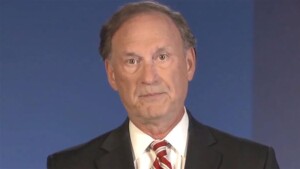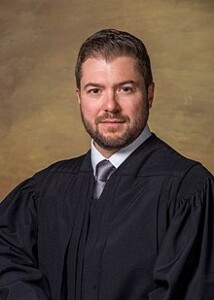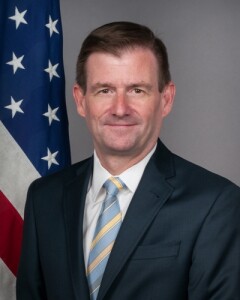Several Federal Courts Have Struck State Limits on Assembly during Pandemic
 (APN) ATLANTA — At least four federal courts have stricken state shelter-in-place orders for violating the First Amendment and/or other amendments to the Constitution of the United States, Atlanta Progressive News has learned through a review and analysis of pandemic-related cases from 2020.
(APN) ATLANTA — At least four federal courts have stricken state shelter-in-place orders for violating the First Amendment and/or other amendments to the Constitution of the United States, Atlanta Progressive News has learned through a review and analysis of pandemic-related cases from 2020.
In addition, four U.S. Supreme Court Justices–Samuel Alito, Clarence Thomas, Brett Kavanaugh, and Neil Gorsuch–were ready to enjoin Nevada Gov. Steve Sisolak in Calvary Chapel Dayton Valley v. Sisolak, in a July 24, 2020 decision, according to three separate filed dissents.
https://www.supremecourt.gov/opinions/19pdf/19a1070_08l1.pdf
At issue in Calvary Chapel was Gov. Sisolak’s order, which prohibited over fifty religious congregation members from gathering, but which allowed casinos to operate at fifty percent capacity up to potentially thousands of guests.
Apparently, the other five Justices, including the now-late Justice Ruth Bader Ginsburg and Chief Justice John Roberts, did not support the injunction.
All eyes will be on Justice Amy Comey Barrett to see whether she joins Justices Alito, Thomas, Kavanaugh, and Gorsuch in future decisions on pandemic-related restrictions.
Justice Alito recently rang an alarm bell regarding our civil liberties in a speech given to the Federalist Society.
https://www.youtube.com/watch?v=tYLZL4GZVbA
While the national corporate news media have sporadically covered COVID-related litigation, there seems to be an underreporting of the judicial opinions that have been critical of the Shelter-in-Place orders.
PENNSYLVANIA CASE
 On September 14, 2020, in County of Butler v. Wolf, U.S. District Court Judge William Shaw Stickman, of the Western District of Pennsylvania, struck down some aspects of Pennsylvania Gov. Tom Wolf’s lockdown orders.
On September 14, 2020, in County of Butler v. Wolf, U.S. District Court Judge William Shaw Stickman, of the Western District of Pennsylvania, struck down some aspects of Pennsylvania Gov. Tom Wolf’s lockdown orders.
https://casetext.com/case/cnty-of-butler-v-wolf-1/
“[G]ood intentions toward a laudable end are not alone enough to uphold governmental action against a constitutional challenge,” U.S. District Judge Stickman wrote.
“Indeed, the greatest threats to our system of constitutional liberties may arise when the ends are laudable, and the intent is good—especially in a time of emergency,” U.S. District Judge Stickman wrote.
“In an emergency, even a vigilant public may let down its guard over its constitutional liberties only to find that liberties, once relinquished, are hard to recoup and that restrictions—while expedient in the face of an emergency situation—may persist long after immediate danger has passed,” U.S. District Judge Stickman wrote.
U.S. District Judge Stickman struck not only the restrictions on assembly as applied to religious worship, but the blanket stay-at-home order and the blanket business closures altogether.
Further, the Court ruled, in a section, “Broad population lockdowns are unprecedented in American law,” that population lockdowns do not meet the definition of a “quarantine” because quarantines only apply to people who have been infected.
Broad population lockdowns “have never been used in response to any other disease in our history. They were not recommendations made by the CDC. They were unheard of by the people [of] this nation until just this year. [sic] It appears as though the imposition of lockdowns in Wuhan and other areas of China—a nation unconstrained by concern for civil liberties and constitutional norms—started a domino effect where one country, and state, after another imposed draconian and hitherto untried measures on their citizens.”
“This broad restructuring of the default concept of liberty of movement in a free society eschews any claim to narrow tailoring,” U.S. District Judge Stickman wrote.
“There is no question that this Country has faced, and will face, emergencies of every sort. But the solution to a national crisis can never be permitted to supersede the commitment to individual liberty that stands as the foundation of the American experiment,” U.S. District Judge Stickman wrote.
“The Constitution cannot accept the concept of a ‘new normal’ where the basic liberties of the people can be subordinated to open-ended emergency mitigation measures. Rather, the Constitution sets certain lines that may not be crossed, even in an emergency.”
Gov. Wolf has appealed to the U.S. Court of Appeals for the Third Circuit, which on October 01, 2020 stayed portions of the lower court ruling pending the appeal.
The case may work its way up to the Supreme Court of the U.S..
KENTUCKY CASES
Three district court and court of appeals decisions out of Kentucky boded poorly for restrictions on assembly.
On May 08, 2020, in Tabernacle Baptist Church, Inc. v. Beshear, U.S. District Court Judge Gregory Van Tatenhove, of the Eastern District of Kentucky, temporarily blocked the state from enforcing its ban on mass gatherings as applied to religious groups.
https://firstliberty.org/wp-content/uploads/2020/05/DN-24-Opinion-and-Order.pdf
 Also on May 08, 2020, in Maryville Baptist Church v. Beshear, U.S. District Court Judge David J. Hale, of the Western District of Kentucky, issued a preliminary injunction preventing Gov. Andy Beshear from enforcing the indoor worship ban against Maryville Baptist Church of Louisville, Kentucky.
Also on May 08, 2020, in Maryville Baptist Church v. Beshear, U.S. District Court Judge David J. Hale, of the Western District of Kentucky, issued a preliminary injunction preventing Gov. Andy Beshear from enforcing the indoor worship ban against Maryville Baptist Church of Louisville, Kentucky.
On May 09, 2020, in Theodore Roberts v. Robert Neace, the U.S. Court of Appeals for the Sixth Circuit enjoined Boone County Attorney Robert Neace from enforcing Gov. Beshear’s ban on mass gatherings as applied to the congregants of Maryville Baptist Church.
http://lc.org/050920MaryvilleOrderGrantingIPA.pdf
Following the May 08 ruling, Gov. Beshear modified his order to the satisfaction of Tabernacle Baptist Church.
The County Attorney and other defendants did not appeal the May 09, 2020 ruling in favor of Maryville Baptist Church. Thus, on Oct. 19, 2020, the U.S. Court of Appeals for the Sixth Circuit found that the injunction remained in place.
https://law.justia.com/cases/federal/appellate-courts/ca6/20-5465/20-5465-2020-10-19.html
NORTH CAROLINA CASE
On May 16, 2020, in Berean Baptist Church v. Cooper, U.S. District Court Judge James Dever, of the Eastern District of North Carolina, issued an injunction blocking enforcement of North Carolina Gov. Roy Cooper’s stay at home order as applied to religious congregations.
“There is no pandemic exception to the Constitution of the United States or the Free Exercise Clause,” wrote U.S. District Court Judge Dever.
https://casetext.com/case/berean-baptist-church-v-cooper
Gov. Cooper decided not to appeal.
GEORGIA CASE
As previously reported by APN, APN’s News Editor is challenging Gov. Brian Kemp’s Shelter-in-Place Order in Fulton County Superior Court, under both the Federal and State Constitutions.
In a recent filing, Gov. Kemp asserted that the voices of the citizenry of Georgia are less important during a pandemic.
However, the Texas Supreme Court recently noted, “If we tolerate unconstitutional government orders during an emergency, whether out of expediency or fear, we abandon the Constitution at the moment we need it most.”
(END / Copyright Atlanta Progressive News / 2020)